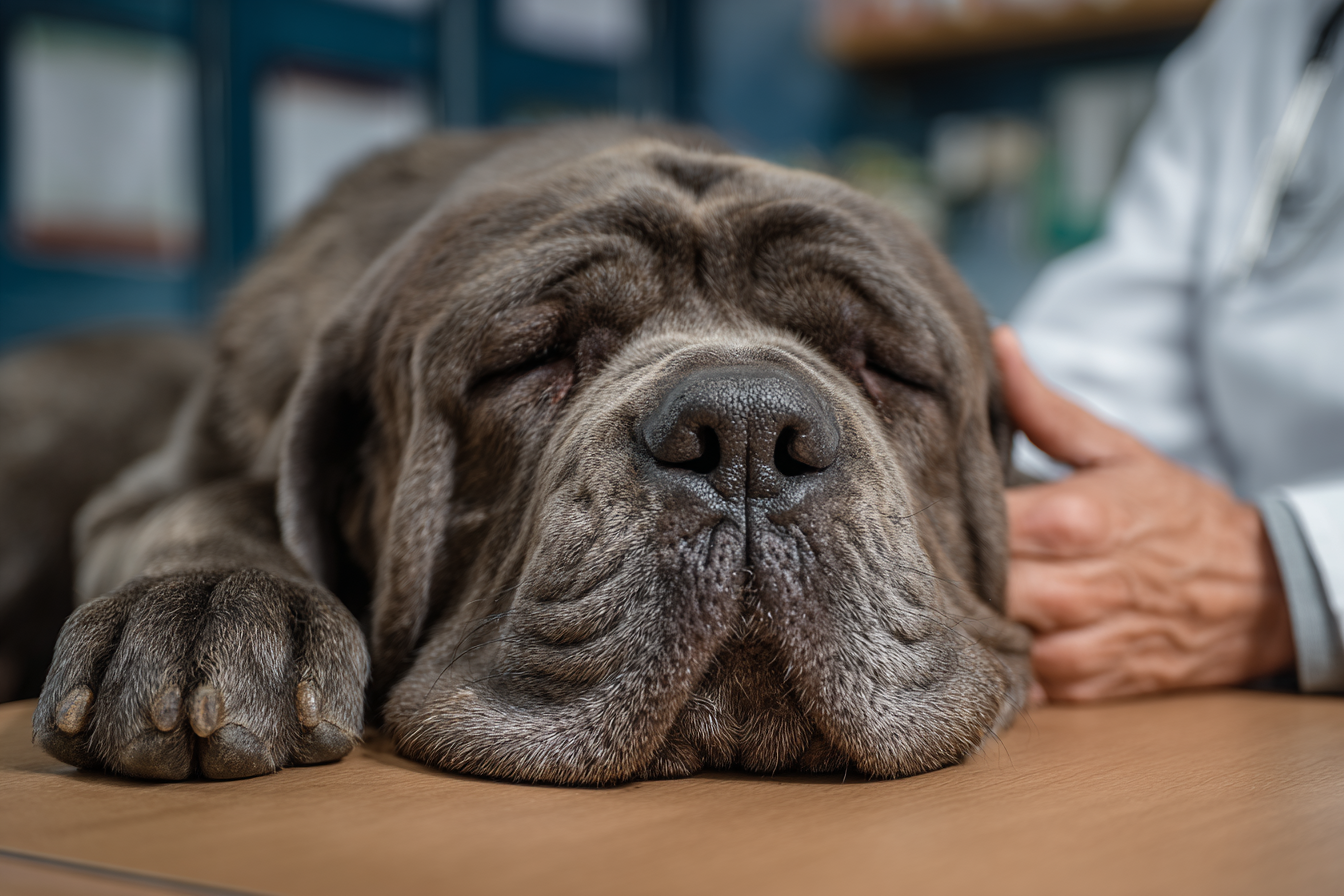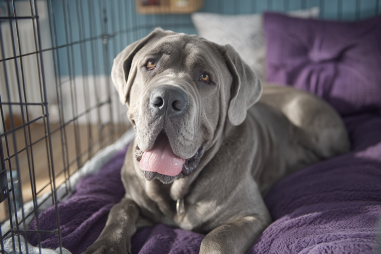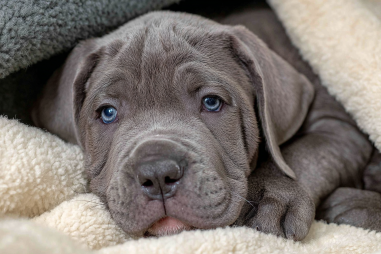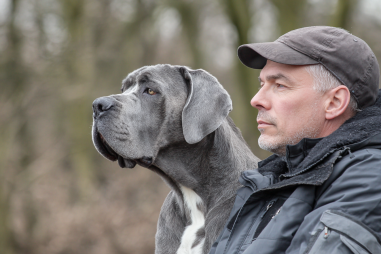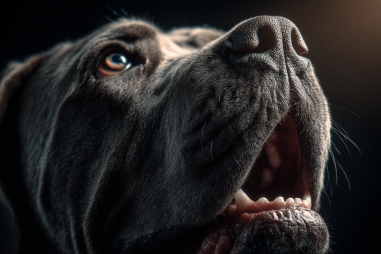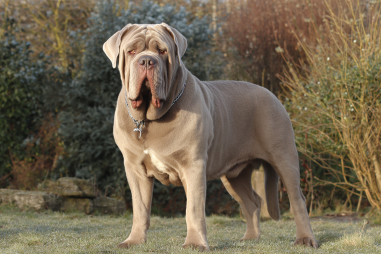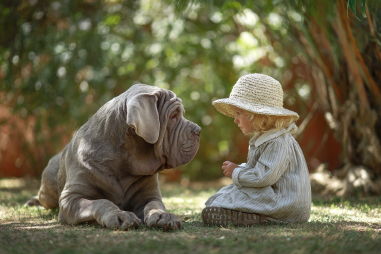Neapolitan Mastiffs are majestic, massive dogs with a unique appearance marked by loose, wrinkled skin and a powerful build. Their imposing presence can be both awe-inspiring and heartwarming, but owning this breed also means being aware of certain health challenges they are prone to. Like many large breeds, Neapolitan Mastiffs have specific wellness needs and vulnerabilities that require attention and care. Understanding these common health issues and knowing how to manage them can help ensure your dog lives a happy, comfortable, and vibrant life.
Typical Health Challenges in Neapolitan Mastiffs
Neapolitan Mastiffs, due to their size, genetics, and unique physiology, face several health concerns that potential owners and current caregivers should watch for. Their health vulnerabilities often stem from their large frame and loose skin, which can predispose them to joint problems, skin infections, and other systemic challenges. Common health issues found in the breed include hip and elbow dysplasia, cardiac problems, respiratory difficulties, and complications from their characteristic skin wrinkles.
Because Neapolitan Mastiffs have been bred for their size and guarding instincts, maintaining their health requires a proactive approach — regular vet visits, good nutrition, controlled exercise, and appropriate grooming all play crucial roles. Let’s take a closer look at some of the most prevalent health issues and how they impact this gentle giant.
Joint and Bone Disorders
Due to their large and heavy physique, Neapolitan Mastiffs are particularly susceptible to joint and bone problems. Hip dysplasia is one of the most common and serious issues. This genetic condition causes abnormal formation of the hip joint, leading to arthritis, pain, and mobility issues. Elbow dysplasia is another concern, often causing lameness and decreased range of motion.
Osteochondritis dissecans (OCD) is a cartilage condition that can affect Neapolitan Mastiffs, particularly affecting the shoulders and causing joint pain. Additionally, the sheer weight of these dogs makes them prone to arthritis as they age.
Managing joint issues means focusing on prevention and treatment strategies:
- Provide joint supplements rich in glucosamine and chondroitin.
- Maintain a healthy weight to reduce strain on joints.
- Limit excessive high-impact activity, especially in puppies as their bones develop.
- Ensure regular veterinary checkups to monitor joint health.
- Consider physical therapy or hydrotherapy if mobility worsens.
Early diagnosis and consistent care can greatly improve the quality of life for a Neapolitan Mastiff dealing with joint issues.
Skin and Wrinkle Care Related Conditions
One of the most distinctive features of the Neapolitan Mastiff is its loose, deep wrinkles, especially around the face and neck. While these wrinkles add to their expressive appearance, they also create environments prone to infections and irritations.
Intertrigo, a common skin condition in wrinkles, occurs when moist skin folds trap dirt, bacteria, and yeast, leading to redness, odor, itching, and discomfort. Skin fold pyoderma—a bacterial skin infection—is also frequently diagnosed in these dogs.
To keep their skin healthy, owners should:
- Clean the wrinkles and skin folds regularly with vet-approved wipes or cleaners.
- Ensure the skin is thoroughly dried after cleaning to prevent moisture buildup.
- Monitor for signs of redness, foul odor, or excessive scratching.
- Seek veterinary advice promptly if infections are suspected.
- Maintain a grooming routine that includes regular baths and appropriate moisturization.
Proper skin care is essential not only to comfort your Neapolitan Mastiff but also to prevent more serious infections that could require medical intervention.
Heart and Respiratory Health
The large size and unique body structure of Neapolitan Mastiffs can predispose them to cardiac and respiratory challenges. Dilated cardiomyopathy (DCM) is a heart condition documented in many giant breeds, including Neapolitan Mastiffs. DCM causes the heart muscles to weaken and enlarge, impairing the organ’s ability to pump blood efficiently.
Respiratory difficulties are also common because this breed often has a brachycephalic (short-nosed) facial structure, which can lead to breathing obstruction issues. While not as extreme as in some shorter-nosed breeds, Neapolitan Mastiffs may suffer from brachycephalic airway syndrome leading to snoring, labored breathing, and heat intolerance.
To protect heart and respiratory health:
- Schedule regular veterinary cardiac evaluations including listening to heart sounds and possibly echocardiograms.
- Keep your dog in a cool, well-ventilated environment to prevent overheating.
- Limit strenuous exercise in hot or humid weather.
- Avoid overfeeding to prevent obesity, which adds stress to the heart and lungs.
- Be alert to symptoms like coughing, fainting, or difficulty breathing, particularly during activity.
Monitoring cardiac and respiratory health plays a critical role in identifying problems early and ensuring appropriate treatment to maintain quality of life.
Preventive Care and Vet Checkups
Prevention is the cornerstone of managing the health issues found in Neapolitan Mastiffs. Frequent and thorough veterinary care helps detect problems before they become severe. For this breed, vet visits should focus on screening for genetic issues like hip and elbow dysplasia, monitoring skin health, assessing heart and respiratory function, and keeping vaccinations and parasite control current.
A typical health regimen for a Neapolitan Mastiff might include:
- Annual comprehensive exams with a veterinarian knowledgeable about giant breeds.
- Dental care to prevent periodontal disease, which can affect overall health.
- Regular blood work to check organ function, especially as the dog ages.
- Early screening for common ailments such as heart murmurs or skin infections.
- Vaccination and prevention protocols against ticks, fleas, and heartworms.
Consistent preventive healthcare not only lengthens lifespan but also promotes comfort and vitality.
Nutrition and Exercise Impact on Health
The diet and exercise routine of a Neapolitan Mastiff are fundamental components toward managing their overall health and especially their specific vulnerabilities. Overfeeding and rapid growth in puppies can worsen joint problems, while obesity in adults aggravates heart, respiratory, and musculoskeletal disorders.
Owners should focus on a balanced diet formulated for large or giant breeds, which provides essential nutrients to support bone and joint development without excessive calories. Feeding in controlled portions helps maintain a healthy weight and prevents metabolic conditions such as diabetes.
Regarding exercise, Neapolitan Mastiffs benefit from moderate, low-impact activity. Long walks, gentle play sessions, and swimming are excellent ways to keep them active without putting undue strain on joints. Avoid excessive running or jumping, especially during growth phases.
Good nutrition combined with an appropriate level of daily activity provides the foundation for a strong, healthy Neapolitan Mastiff.
Keeping Your Neapolitan Mastiff Thriving
While Neapolitan Mastiffs face several breed-specific health issues, many of these can be managed or significantly reduced with diligent care, early intervention, and informed lifestyle choices. Paying close attention to joint health, skin condition, heart function, and maintaining a balanced diet along with consistent veterinary checkups will give your dog the best chance at a long, happy life.
The Neapolitan Mastiff’s loving and loyal nature makes all the effort worthwhile. With the right care, your giant companion can thrive, showing off not only its imposing stature but also its vibrant health and affectionate personality.

